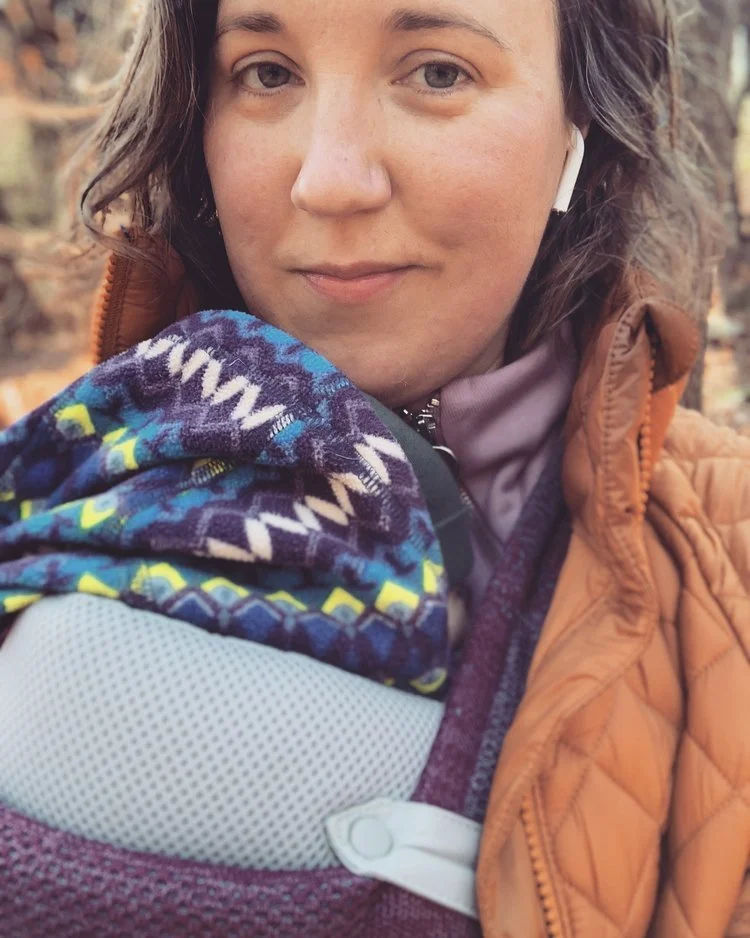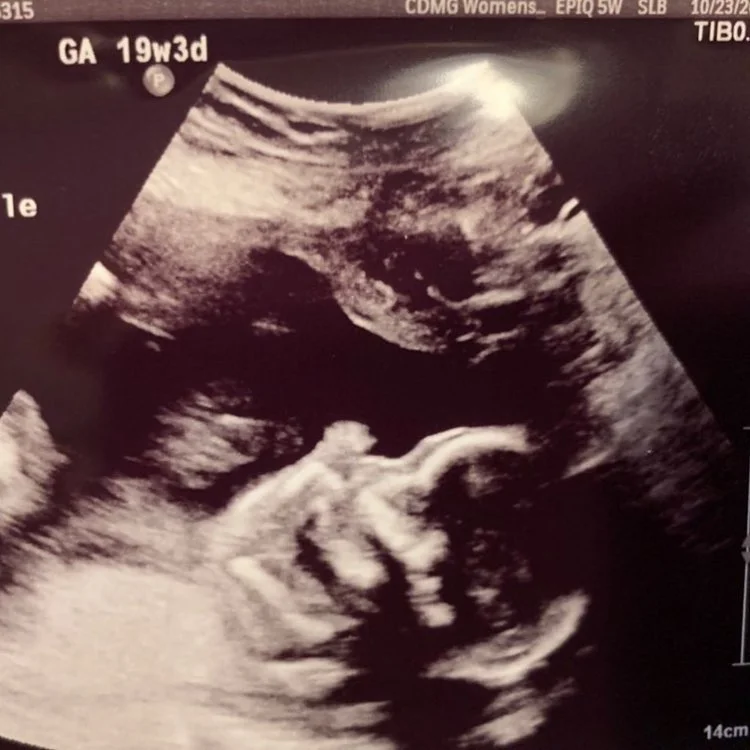Lindsay's Solstice Reflection
(TW: Pregnancy loss)
Lindsay & Heron walking in the woods.
Fourteen months ago, my partner and I lost our first baby at 20 weeks in utero. As Jonathan and I approached last year’s Winter Solstice, we were absolutely grief stricken. The light of the holidays felt harsh against the enveloping darkness. Even a trip to the grocery store left me in tears. We hid in our home, somewhat relieved that the pandemic gave us an excuse to pretend the holidays did not exist.
This year’s Solstice, I am emerging from parental leave after giving birth to our second child—the baby who lived. I spent most of this year anxiously awaiting a possibility that I could not dare to hope for. I did not believe that our baby would survive until feeling the top of his head in labor. Now that he is here, I look into his eyes and I feel my body tentatively soften. And I enter this holiday season holding both the very real sorrow of my daughter's absence and the very real joy of my son’s presence.
The pandemic has offered us a collective experience of loss and grief. Although protective measures are better, the pandemic is not over. We hold the grief of what we have lost, the anger that we are still in this, and the anxiety for how long this will last. How do we access any semblance of joy when the stakes are so high?
Our daughter, Rowan Summers.
I recently started practicing yoga (asana) again postpartum, and I was reminded that my practice allows me to bring all of myself to the mat. I bring my exhaustion, my frustration, and my grief. And I allow for gratitude, joy, sometimes giddiness. (Weirdly, it is levity that feels rebellious these days.) I do not deny the sorrow, but I create enough space for many things to be true. I access a part of me that was there before the pandemic, before my pregnancy loss, before becoming a mother. It is a part I could not access last year, but now I recognize the ever-burning ember within my heart. As I move and breathe, I integrate this steady part with the ever-shifting parts.
In her memoir Wintering, Katherine May reflects on life’s struggles and joys as cyclical:
Nature shows that survival is a practice. Sometimes it flourishes—lays on fat, garlands of itself in leaves, makes abundant honey—and sometimes it pares back to the very basics of existence in order to keep living. It doesn’t do this once, resentfully, assuming that one day it will get things right and everything will smooth out. It winters in cycles, again and again, forever and ever. It attends to this work each and every day. For plants and animals, winter is part of the job. The same is true for humans.
I am reminded of the Vedas, the earliest known sacred texts of yoga philosophy, which worshipped the elements of nature as different deities, and showed their devotion through sacrificial fires. The earliest expression of yoga was a deep devotion to our natural world. As yoga philosophy progressed, the external sacrifice was internalized. I am emerging from an inner wintering—integrating my grief into a good, full life. As a collective we are still very much in the wintering season of this pandemic.
Our son, Heron Rowe.
What yoga teaches us is that traversing the darkness is part of life. It is not a character flaw to struggle, mine or anyone else’s. And I really don’t believe that horrible things happen to us so we can grow. And yet, I hope that my loss carves out more room for empathy, maybe even sweetness.
I look at my child and I can’t stay only in the dark place. It is there, but it is not all there is. That place is real, and so is the light. The darkness is not something to move through but to embody, as much as we embody light. It is the ocean beneath a sailboat skimming the waves. It is the rich earth beneath an insect climbing the vine. It waits to envelop us. We will return there one day. And likewise, we will soar above, flying toward the sun, with wings that reflect the Universe.
Yours in the darkness and the light,
Lindsay



